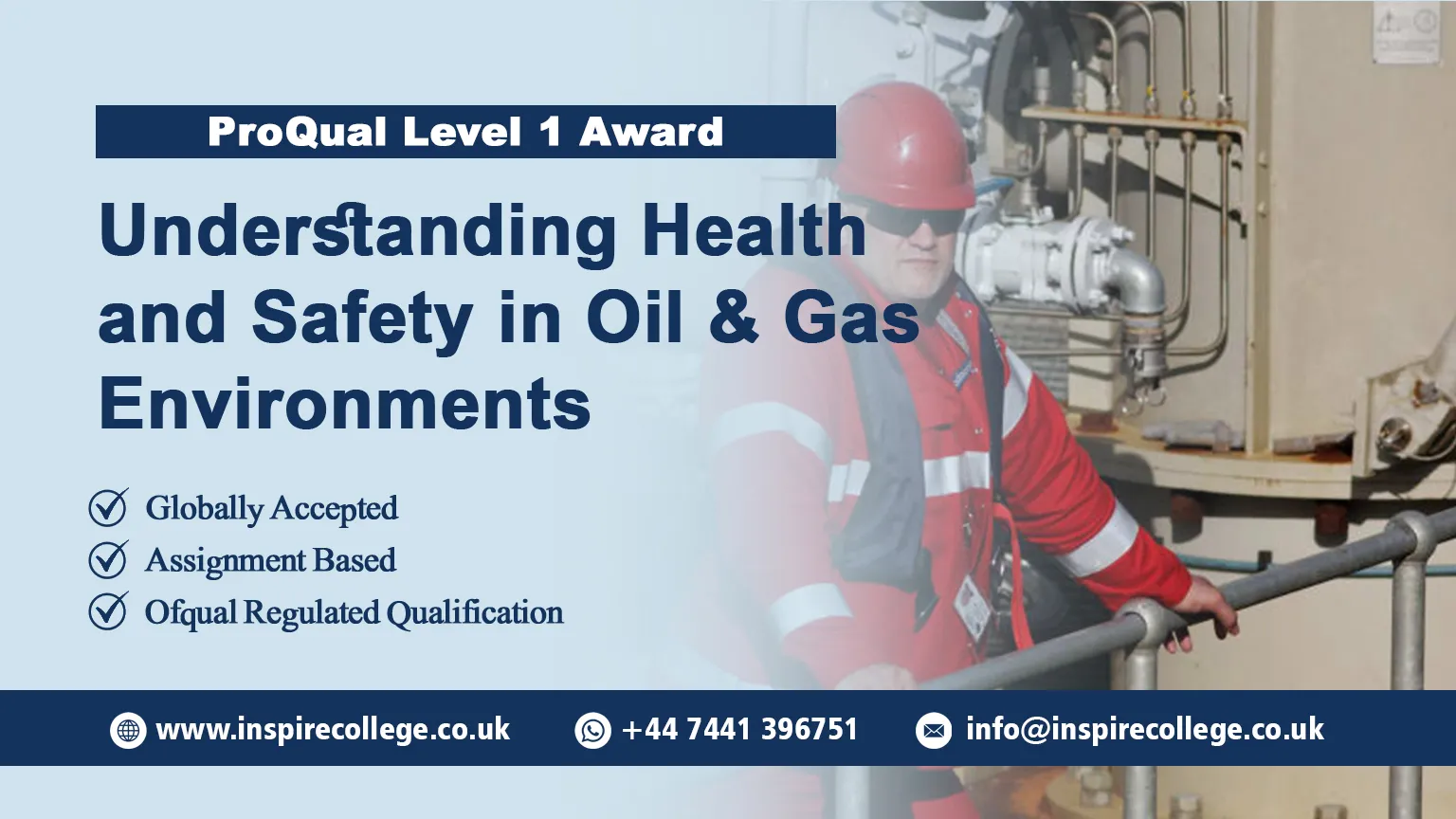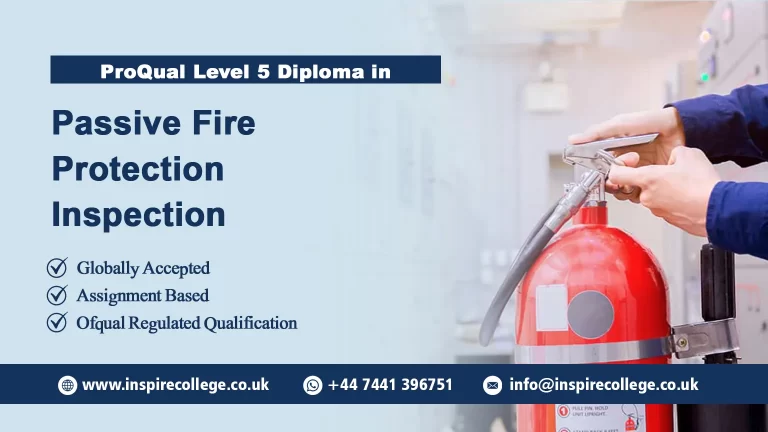
Course Name
ProQual Level 1 Award in Understanding Health and Safety in Oil & Gas Environments
New Session Date
11th Nov 2025
Completion Time:
4 – 6 Months
Study Mode
Online
Study Units
1 Mandatory Unit
Evaluation / Exam
Evidence & Assignment Based
ProQual Level 1 Award in Understanding Health and Safety in Oil & Gas Environments
The oil and gas industry is one of the most complex and hazardous sectors in the world. With numerous risks associated with exploration, extraction, processing, and transportation, safety becomes paramount to ensure the well-being of workers and the protection of the environment. As a result, regulatory bodies and employers are emphasizing the importance of proper safety training. The ProQual Level 1 Award in Understanding Health and Safety in Oil & Gas Environments is designed to equip individuals with the foundational knowledge needed to navigate this high-risk sector safely and effectively.
The ProQual Level 1 Award is an introductory course aimed at individuals who are either entering or currently working in the oil and gas industry. The course provides an essential understanding of health and safety principles specifically tailored to oil and gas environments. Topics covered include hazard identification, risk management, emergency procedures, and understanding the regulatory frameworks that govern health and safety practices in this sector.
The oil and gas sector is inherently dangerous, with potential hazards such as fires, explosions, exposure to toxic chemicals, and physical injuries. Understanding and mitigating these risks is critical for ensuring a safe working environment. The ProQual Level 1 Award is designed to instill a strong safety culture within individuals and organizations.
The ProQual Level 1 Award in Understanding Health and Safety in Oil & Gas Environments is a vital qualification for anyone working in or entering the oil and gas industry. With its focus on providing foundational safety knowledge, this course enables workers to understand, identify, and mitigate the risks associated with their roles. Not only does it promote a safer working environment, but it also helps companies meet regulatory requirements and avoid operational disruptions. For individuals seeking to advance their careers in this high-risk sector, this qualification serves as an essential building block toward a safer and more responsible industry future.






